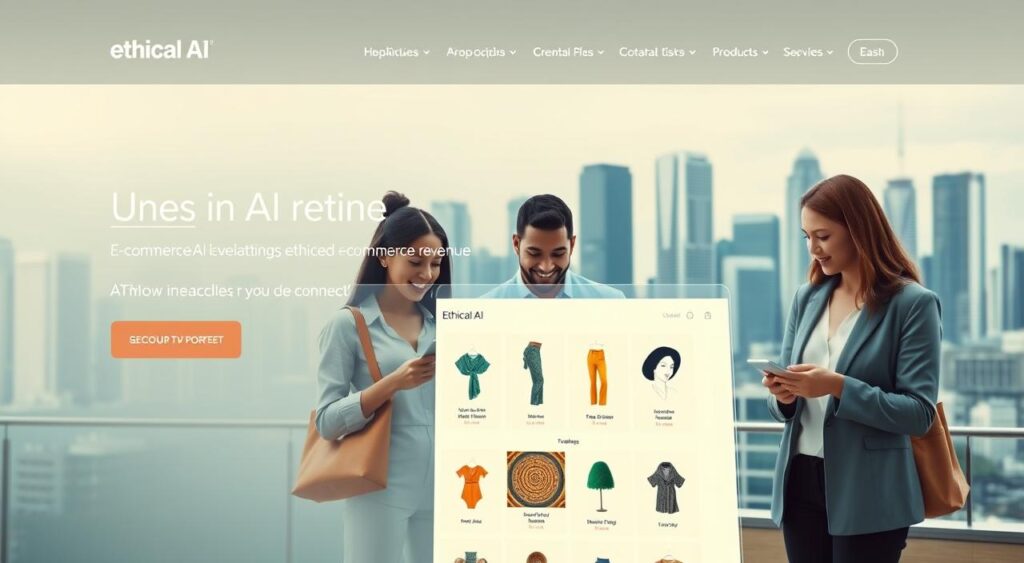Did you know OpenAI’s Ghibli trend has caught millions in just weeks? It has generated 50 million images through its AI chatbot. This trend lets users turn their photos into magical artwork like Hayao Miyazaki’s.
But, there’s a darker side to this. While it brings joy to many, it also raises big privacy concerns. The risk of personal images being used for AI training is real. This could lead to serious privacy issues for users.
The Genesis and Rise of the Ghibli Trend
The Ghibli trend has grown fast after OpenAI added new image features to ChatGPT. This tool, first for paid users, became free in late March. Now, more people can turn their ideas into beautiful Ghibli-style art.
Introduction of Image Generation Features in ChatGPT
ChatGPT’s new image input has excited many users. Seeing photos turned into Ghibli art is more fun than just text prompts. This feature has sparked creativity and enthusiasm among users eager to share their art.
Popularization of the Ghibli Trend by Early Users
Grant Slatton, a software engineer, started a viral trend with a Ghibli-styled image. It got over 52 million views, inspiring millions to join in. Users shared their Ghibli art on social media, making the trend even bigger.
The Role of Celebrities and Brands in Amplifying the Trend
Despite some privacy concerns, the Ghibli trend has gained widespread support. Celebrities like Sachin Tendulkar and Amitabh Bachchan have helped spread it. Brands, including MyGovIndia, have also joined in, seeing its cultural impact. Their support has kept the trend alive and growing.
Privacy and Data Security Concerns Behind the Ghibli Trend
The Ghibli trend is exciting, but it brings up big privacy issues. It’s important to know how OpenAI uses our data. Users might share personal info without knowing, which is a big worry.
Knowing OpenAI’s data policies can help keep our online interactions safe. This knowledge is key to protecting ourselves.
Understanding OpenAI’s Data Collection Policies
OpenAI says it collects user content to improve its AI. This makes people wonder how much data is being taken. Without clear info, users might think their data is private.
This lack of transparency raises big questions. What data is OpenAI collecting, and how is it used?
The Opt-out Mechanism and Its Lack of Visibility
OpenAI has an opt-out option for data collection. But, not many know about it. The terms of use can be too long and confusing.
This means many users don’t know their data is being kept. Without careful management, our data stays on OpenAI’s servers for too long. This makes us more vulnerable to online threats.

OpenAI’s Viral Ghibli Trend Might Be a Privacy Minefield
The Ghibli trend has caught the attention of many, encouraging them to share their likenesses in creative ways. This excitement brings up important questions about privacy and data safety. People might not know the privacy risks of sharing personal images online, leading to unexpected problems.
Potential Risks of Unintentionally Sharing Personal Data
When users post images for the Ghibli trend, they unknowingly risk their personal data. These images could be used for identity theft or other harmful purposes. Many don’t think about how their data, once online, can be accessed by bad actors.
The Consequences of Permanent Digital Footprints
Sharing facial data leaves a permanent mark online, a worry for those who don’t grasp the risks. Unlike other data, facial features can’t be erased once shared. This makes users more vulnerable to privacy threats.
Cybersecurity Concerns Related to Facial Data Uploads
Uploading facial images for the Ghibli trend poses serious cybersecurity risks. Experts say that data linked to these images can be stolen and used. Without strong security, users may face breaches.
Legal Implications of Data Collection under GDPR
Images shared by users raise legal concerns, mainly under GDPR rules. Users might give consent for their images to be used in ways they don’t fully understand. OpenAI’s practices could take advantage of loopholes, making data management even harder.

Conclusion
OpenAI’s Ghibli trend is exciting and lets people show their creativity. But, it’s important to watch out for privacy concerns. Sharing personal images can lead to risks.
Enjoying the art shouldn’t ignore the privacy risks. It’s key to understand how platforms like OpenAI collect data. This helps people decide what to share wisely.
It’s all about finding a balance between fun and safety. As technology grows, we must protect our privacy. We should be careful and responsible while exploring new digital tools.
FAQ
What is the Ghibli trend associated with OpenAI?
The Ghibli trend lets users turn their images into magical art. It’s inspired by Hayao Miyazaki’s famous works. This is done using OpenAI’s AI chatbot, like the GPT-4o model.
What privacy concerns are linked to participating in the Ghibli trend?
Experts say users might unknowingly share personal images for AI training. This could lead to identity theft, damage to reputation, and exposure of facial data. These digital footprints can’t be erased.
How does OpenAI handle user data generated through the Ghibli trend?
OpenAI uses user content, like images and text, to improve its AI models. Users should know their data stays on servers unless they delete it. This puts their privacy at risk.
Is there a way to opt-out of OpenAI’s data collection practices?
Yes, users can opt-out. But many don’t because the option is hard to find in the terms of use. This makes it hard for users to know they can share their data.
Are there any safeguards for users regarding their images?
Sadly, once facial data is shared, it can’t be changed or deleted. This makes protecting online privacy and personal data very challenging.
What implications does the GDPR have for this data collection?
GDPR loopholes are a big concern. Users might give OpenAI permission to use their data without realizing it. This adds more risks to user privacy.
Joni has been an ECT News Network columnist since 2003. His areas of interest include AI, autonomous driving, drones, personal technology, emerging technology, regulation, litigation, M&E, and technology in politics. He has an MBA in human resources, marketing and computer science. He is also a certified management accountant. Enderle currently is president and principal analyst of the Enderle Group, a consultancy that serves the technology industry. He formerly served as a senior research fellow at Giga Information Group and Forrester. Email Rob.




